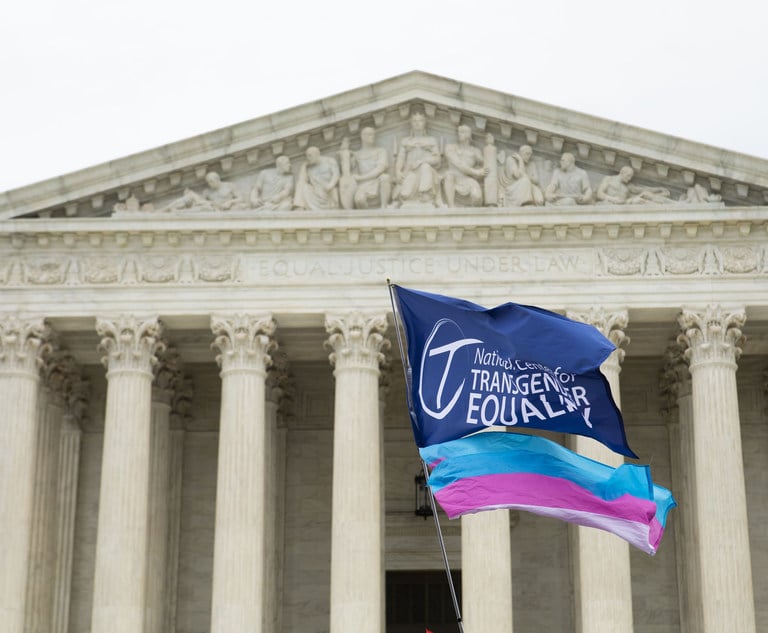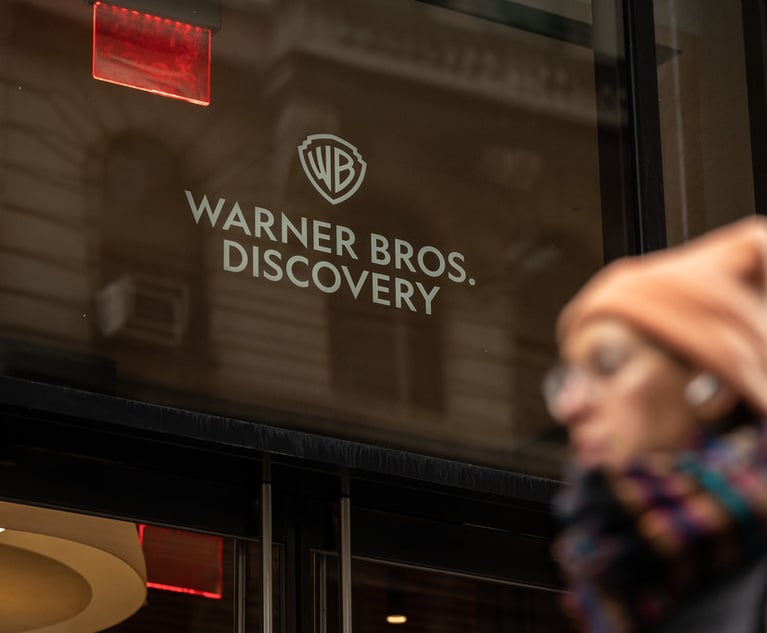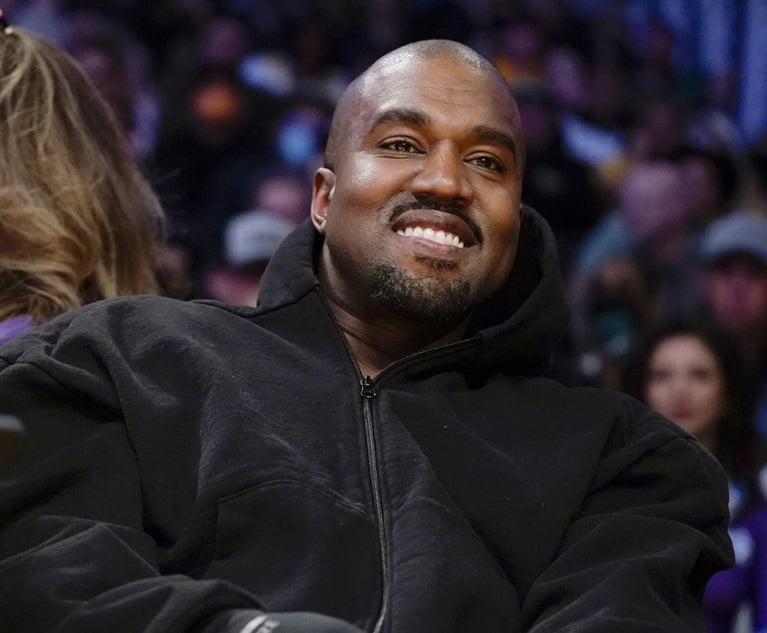Dodgers' GC Says Technology Has Created Major League Changes for Baseball Lawyers
Veteran legal leader Sam Fernandez spoke on Friday at Berkeley Law about how in-house lawyers' roles in the sport have evolved over his three-and-half decades on the job.
April 13, 2018 at 03:29 PM
4 minute read
The original version of this story was published on Corporate Counsel

During his 35 years on the job, Sam Fernandez of the Los Angeles Dodgers has had to play ball with dramatic new developments in the sport.
At Berkeley Law's Future of Sports conference Friday, the Dodgers' longtime general counsel and senior vice president spoke about his journey as an in-house leader in Major League Baseball and where the legal side of the sport is going next.
Fernandez was one of the first GCs in the major leagues, joining the Dodgers in 1983. He said that at the start of his in-house career, the team's lawyers were often “making it up as we [went] along,” with little in the way of clear precedents before them.
“When I look back at my career, and I do so from the perspective of giving someone advice who may be getting into sports [law] today, the first thing that comes to my mind is that the opportunities I had, the experience I had sadly probably cannot be replicated,” Fernandez told a room of sports lawyers and J.D. candidates.
He noted that the growing use of analytics, technology and social media have completely changed the in-house role. While new lawyers coming in-house with baseball teams may not have to navigate changing rules around free agency and the creation of MLB properties like Fernandez once did, he said there are new questions arising in the industry.
“For people getting into the industry now, I think there are some exciting opportunities relating to technology and the impact of how we present the game,” Fernandez said. “Not only how we present the game on cable, but also how we present the game at the ballpark, from digital ticketing, the kind of information you get at the ballpark, all of those things are just developing now, and how we interact with our customers. It will be an exciting area to be involved with in the future.”
Fernandez said his job now includes helping the Dodgers walk a difficult line with social media. The team wants fans to share their love of the game online, but when they live stream games from the stadium, intellectual property issues may come into play.
He added that employment law in baseball has also become increasingly complicated, and that he's had to rely more on outside counsel for help with human resources, employment law and players' immigration issues in recent years. But increased use of outside counsel isn't necessarily a bad thing, Fernandez said.
“One of the pieces of advice I would give to someone starting in the business is to rely on outside counsel a lot more than I [did when I was] starting in the business,” he said. “Because everything has gotten a lot more complicated.”
Fernandez said lawyers who want to play in the big leagues should not be afraid of technology, but they should also avoid being “seduced by technology to skip the steps necessary to generate good work.” He explained that contracts and other legal documents can't be done well if they're copied and pasted—they need a thorough look.
And for those interested in an in-house gig just for the love of the game, Fernandez clarified that his job doesn't involve practicing with the team, or much baseball-playing in general.
“Sports fans think there's some aspect of getting close to the players and coaching staff and somehow participating in the sport,” he said. “In 35 years, I have never swung a bat at Dodger Stadium.”
This content has been archived. It is available through our partners, LexisNexis® and Bloomberg Law.
To view this content, please continue to their sites.
Not a Lexis Subscriber?
Subscribe Now
Not a Bloomberg Law Subscriber?
Subscribe Now
NOT FOR REPRINT
© 2024 ALM Global, LLC, All Rights Reserved. Request academic re-use from www.copyright.com. All other uses, submit a request to [email protected]. For more information visit Asset & Logo Licensing.
You Might Like
View All
Court rejects request to sideline San Jose State volleyball player on grounds she’s transgender
4 minute read


Federal Judge Rejects Teams' Challenge to NASCAR's 'Anticompetitive Terms' in Agreement
Trending Stories
- 1Judge Denies Sean Combs Third Bail Bid, Citing Community Safety
- 2Republican FTC Commissioner: 'The Time for Rulemaking by the Biden-Harris FTC Is Over'
- 3NY Appellate Panel Cites Student's Disciplinary History While Sending Negligence Claim Against School District to Trial
- 4A Meta DIG and Its Nvidia Implications
- 5Deception or Coercion? California Supreme Court Grants Review in Jailhouse Confession Case
Who Got The Work
Michael G. Bongiorno, Andrew Scott Dulberg and Elizabeth E. Driscoll from Wilmer Cutler Pickering Hale and Dorr have stepped in to represent Symbotic Inc., an A.I.-enabled technology platform that focuses on increasing supply chain efficiency, and other defendants in a pending shareholder derivative lawsuit. The case, filed Oct. 2 in Massachusetts District Court by the Brown Law Firm on behalf of Stephen Austen, accuses certain officers and directors of misleading investors in regard to Symbotic's potential for margin growth by failing to disclose that the company was not equipped to timely deploy its systems or manage expenses through project delays. The case, assigned to U.S. District Judge Nathaniel M. Gorton, is 1:24-cv-12522, Austen v. Cohen et al.
Who Got The Work
Edmund Polubinski and Marie Killmond of Davis Polk & Wardwell have entered appearances for data platform software development company MongoDB and other defendants in a pending shareholder derivative lawsuit. The action, filed Oct. 7 in New York Southern District Court by the Brown Law Firm, accuses the company's directors and/or officers of falsely expressing confidence in the company’s restructuring of its sales incentive plan and downplaying the severity of decreases in its upfront commitments. The case is 1:24-cv-07594, Roy v. Ittycheria et al.
Who Got The Work
Amy O. Bruchs and Kurt F. Ellison of Michael Best & Friedrich have entered appearances for Epic Systems Corp. in a pending employment discrimination lawsuit. The suit was filed Sept. 7 in Wisconsin Western District Court by Levine Eisberner LLC and Siri & Glimstad on behalf of a project manager who claims that he was wrongfully terminated after applying for a religious exemption to the defendant's COVID-19 vaccine mandate. The case, assigned to U.S. Magistrate Judge Anita Marie Boor, is 3:24-cv-00630, Secker, Nathan v. Epic Systems Corporation.
Who Got The Work
David X. Sullivan, Thomas J. Finn and Gregory A. Hall from McCarter & English have entered appearances for Sunrun Installation Services in a pending civil rights lawsuit. The complaint was filed Sept. 4 in Connecticut District Court by attorney Robert M. Berke on behalf of former employee George Edward Steins, who was arrested and charged with employing an unregistered home improvement salesperson. The complaint alleges that had Sunrun informed the Connecticut Department of Consumer Protection that the plaintiff's employment had ended in 2017 and that he no longer held Sunrun's home improvement contractor license, he would not have been hit with charges, which were dismissed in May 2024. The case, assigned to U.S. District Judge Jeffrey A. Meyer, is 3:24-cv-01423, Steins v. Sunrun, Inc. et al.
Who Got The Work
Greenberg Traurig shareholder Joshua L. Raskin has entered an appearance for boohoo.com UK Ltd. in a pending patent infringement lawsuit. The suit, filed Sept. 3 in Texas Eastern District Court by Rozier Hardt McDonough on behalf of Alto Dynamics, asserts five patents related to an online shopping platform. The case, assigned to U.S. District Judge Rodney Gilstrap, is 2:24-cv-00719, Alto Dynamics, LLC v. boohoo.com UK Limited.
Featured Firms
Law Offices of Gary Martin Hays & Associates, P.C.
(470) 294-1674
Law Offices of Mark E. Salomone
(857) 444-6468
Smith & Hassler
(713) 739-1250






